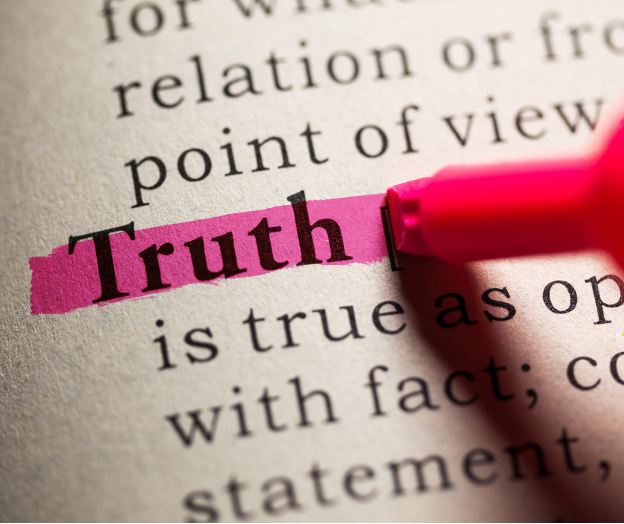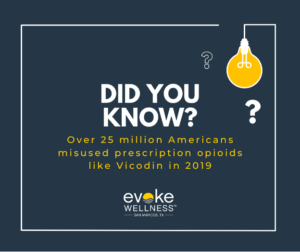You may have heard that Vicodin is one of the most widely prescribed and abused prescription painkillers. The statistics are staggering – nearly 130 people die every day from opioid overdoses involving prescription pain relievers like Vicodin. If you or a loved one is struggling with Vicodin addiction, it can feel overwhelming.
There are many effective treatment options:
- Medication-assisted treatment
- Behavioral therapies like EMDR
- 12-step programs
- Relapse prevention strategies
- Holistic approaches
With professional help and support, you can overcome Vicodin dependence and get your life back on track. This article provides an in-depth look at Vicodin abuse and the most effective addiction treatment approaches.
What Is Vicodin?
Vicodin is a prescription painkiller containing hydrocodone and acetaminophen. It’s used to treat moderate to severe pain, but carries a high risk of dependence and addiction.
Potent Opioid Medication
As an opioid, Vicodin binds to receptors in the brain to block pain signals. This makes it highly effective for pain relief, but also produces euphoric effects that can lead to abuse.
High Potential for Misuse
Vicodin is one of the most commonly abused prescription drugs. Its potency, combined with widespread availability, makes it a frequent target for recreational use and addiction.
Vicodin Abuse Statistics
Furthermore, roughly 2 million people suffered from an opioid use disorder involving prescription painkillers in 2019.
The path to Vicodin addiction often begins innocently – perhaps you were prescribed it for acute pain after an injury or surgery. But with repeated use, dependence can develop quickly. In 2022 alone, over 191 million Vicodin prescriptions were dispensed in the U.S.
Seeking professional treatment is crucial for overcoming Vicodin addiction safely and avoiding life-threatening complications. With comprehensive care addressing the physical, psychological and social aspects, full recovery is achievable.
Side Effects of Vicodin Abuse
If you abuse Vicodin, the side effects can be severe. Physical symptoms may include:
- Constipation
- Nausea and vomiting
- Drowsiness
- Slowed breathing
Psychological side effects of Vicodin misuse include anxiety, confusion, and depression. Long-term abuse can lead to addiction – an overpowering compulsion to keep using despite negative consequences. Seek medical help immediately if you experience any troubling side effects from Vicodin misuse.
Dangers of Vicodin Addiction
Physical Dangers
Vicodin addiction ravages the body. Long-term abuse can damage vital organs like the liver, kidneys and heart. Overdose is also a risk, potentially leading to respiratory depression, coma or death.
Mental Health Risks
Vicodin hijacks the brain’s reward system, fueling compulsive use despite negative consequences. Addiction alters brain chemistry, causing mood swings, anxiety, paranoia and depression. Cognitive impairment is common too.
Social Consequences
Jobs, relationships and financial security are often casualties of Vicodin dependence. The drug can make people emotionally detached, neglecting family, work and responsibilities. Legal troubles may arise from drug-seeking behavior.
Signs of Vicodin Addiction
Physical Symptoms
Are you experiencing constipation, nausea, or slowed breathing? These could indicate Vicodin abuse. Other telltale signs include:
- Drowsiness and sedation
- Constricted pupils
- Slurred speech
Psychological Signs
Vicodin addiction alters your mindset. Look for:
- Mood swings and irritability
- Loss of motivation
- Impaired cognitive abilities
Behavioral Changes
Your actions may reveal the truth. Signs include:
- “Doctor shopping” for pills
- Social withdrawal and isolation
- Stealing or lying to obtain the drug
Treatment for Vicodin Addiction
Overcoming vicodin addiction requires professional help and a comprehensive approach.
Medically-Assisted Treatment
- Medications like Vivitrol can ease withdrawal symptoms and cravings.
- Prescription drug addiction treatment programs provide medical supervision.
Therapy Approaches
- EMDR therapy helps process addiction’s emotional roots.
- 12-step recovery programs offer group support and accountability.
- Relapse prevention therapy builds coping strategies.
Holistic Healing
- Holistic therapies like yoga, meditation, and nutrition counseling promote overall well-being.
- A whole-person approach addresses physical, mental, and spiritual needs.
With the right combination of medical care, counseling, and lifestyle changes, you can reclaim your life from vicodin’s grip.
Vivitrol Treatment for Vicodin Addiction
Medication-Assisted Treatment
Vivitrol is an injectable medication used to treat opioid addiction. It blocks opioid receptors in the brain, reducing cravings and preventing highs from opioids like Vicodin. With proper counseling, Vivitrol can help you overcome addiction.
Long-Lasting Relief
One advantage of Vivitrol is its extended-release formula. A single injection can provide relief from cravings for up to a month – allowing you to focus on recovery without daily doses.
Part of a Comprehensive Plan
While helpful, Vivitrol works best when combined with behavioral therapies and support. A holistic treatment plan addressing addiction’s root causes provides the greatest chance for lasting sobriety.
12 Step Programs for Recovering From Vicodin Addiction
Embrace a Supportive Community
Recovering from Vicodin addiction requires unwavering commitment. 12-step programs provide a supportive community to lean on during this arduous journey.
Learn from Shared Experiences
Attending meetings allows you to learn from others’ experiences with Vicodin addiction and recovery. Their stories offer invaluable insights and inspiration.
Develop Accountability
Sponsors in 12-step programs hold you accountable to your recovery goals. This sense of accountability is crucial for maintaining sobriety long-term.
Relapse Prevention Therapy for Vicodin Addiction
Relapse prevention therapy helps identify triggers and high-risk situations that could lead to a Vicodin use relapse. Through cognitive and behavioral strategies, you’ll develop coping mechanisms and prevention techniques.
Build Self-Awareness
Identify internal and external cues associated with past Vicodin use. Notice physical cravings, emotions, thoughts and environmental factors that act as triggers.
Develop Coping Skills
Replace unhealthy thoughts and behaviors with positive coping strategies. Practice relaxation exercises, journaling, seeking support, and removing yourself from risky situations.
Create a Relapse Prevention Plan
Outline specific steps for if/when cravings or triggers arise. This written plan provides a roadmap to navigate high-risk scenarios and maintain sobriety.
Holistic Therapy for Overcoming Vicodin Addiction
Mind-Body Healing
Overcoming Vicodin addiction requires holistic healing of the mind and body. Mindfulness practices like meditation and yoga can help you become more self-aware, manage cravings, and process underlying emotional issues.
Nutrition Therapy
Proper nutrition replenishes nutrients depleted by substance abuse and supports physical healing. A balanced diet rich in vitamins, minerals, proteins and healthy fats can improve energy levels and overall well-being.
Exercise Programs
Regular exercise releases endorphins that improve mood naturally. Customized fitness plans rebuild strength and stamina while reducing stress and anxiety that can trigger relapse.
Vicodin Addiction FAQs
What is Vicodin addiction?
- An inability to control Vicodin use despite negative consequences. Withdrawal symptoms occur with discontinued use.
Signs of Vicodin abuse?
- Taking higher doses than prescribed, doctor shopping, preoccupation with obtaining refills. Physical signs include drowsiness, constipation.
Treatment options?
- Inpatient rehab, medication-assisted treatment (Vivitrol), behavioral therapies (EMDR, relapse prevention). Holistic approaches address mind-body healing.
Conclusion
You now understand the truth about Vicodin abuse and addiction treatment. The statistics are alarming, but help exists. Make the courageous decision to seek treatment. A program integrating prescription drug addiction treatment, 12 step recovery, EMDR therapy, relapse prevention therapy, and holistic methods can help you defeat this disease. With the right treatment team guiding you, freedom from addiction is possible. Take it one day at a time, surrounding yourself with support. You have so much life ahead; walk forward with hope into a brighter future.
Begin Your Journey with Evoke Wellness at San Marcos
If you or a loved one is considering treatment, Evoke Wellness at San Marcos invites you to contact us. Our compassionate team is ready to answer your questions, discuss your needs, and help you take the first steps toward recovery. At Evoke Wellness, you will find more than just a treatment program – you’ll discover a community dedicated to your wellness and success. Together, let’s embrace the journey to recovery and the promise of a new beginning. Call us at (833) 503-0734 today or reach out online.



